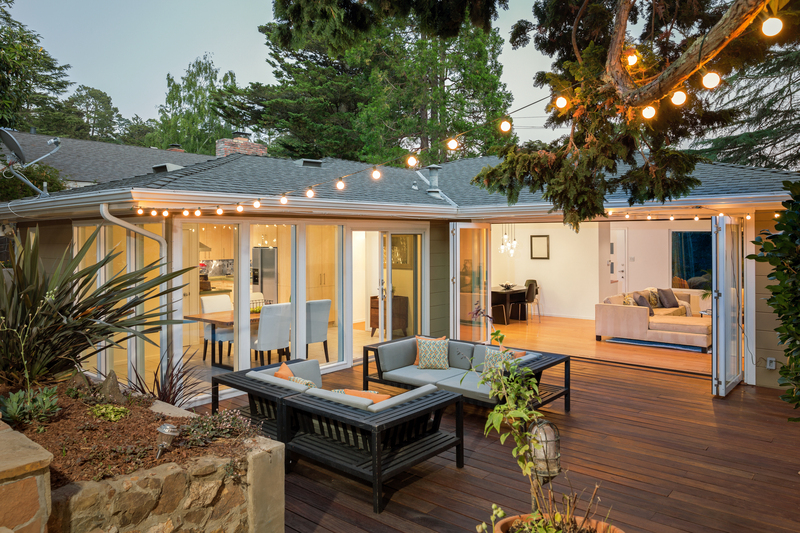Harness the Power of Zen for a Beautiful and Serene Outdoor Space
Posted on 03/09/2025
Harness the Power of Zen for a Beautiful and Serene Outdoor Space
In today's fast-paced world, people increasingly seek solace and tranquility. One time-honored path to peace is through the art of Zen landscaping. Designed to foster mindfulness and invite serenity, the Zen philosophy celebrates simplicity, authenticity, and harmony with nature--creating beautiful outdoor spaces that become sanctuaries for the soul.
In this comprehensive guide, we'll explore how to transform your yard or garden into an oasis of calm by harnessing the power of Zen. Whether you have a sprawling lawn or a small patio, Zen-inspired principles can help you achieve a serene, beautiful exterior to savor every day.
What Does It Mean to Create a Zen Outdoor Space?
A Zen outdoor space is more than just a garden--it's an immersive environment designed for reflection, relaxation, and connection. Drawing inspiration from the ancient Japanese Zen Buddhist tradition, this style emphasizes:
- Simplicity and Minimalism
- Natural Elements
- Balance and Harmony
- Mindful Arrangement
- Subtle Beauty
The main goal is to create an outdoor sanctuary that encourages mindfulness, reduces stress, and promotes inner peace. By embracing Zen garden principles, you also add unique charm and serenity to your overall landscape design.

Key Elements of a Beautiful Zen Garden
To harness the power of Zen in your landscape, each element must be purposeful and harmonious. Below are the core components that define a serene Zen-inspired space:
1. Rocks and Stones
- Rocks represent mountains or islands in Zen philosophy.
- Choose stones of natural shapes and neutral tones (granite, basalt, slate).
- Group stones in odd numbers for balanced, organic arrangement.
- Use larger rocks as focal points, or scatter smaller pebbles and gravel to evoke flowing water or raked sand.
2. Sand, Gravel, and Raked Patterns
- Utilize white gravel or sand as the main surface in your Zen area.
- Rake the surface into flowing lines or spiral patterns to symbolize rippling water.
- This meditative act fosters mindfulness and creativity.
3. Water Features
- Water embodies purity and serenity in Zen gardens.
- Incorporate a small pond, bamboo fountain, or gently trickling waterfall.
- The sound of water provides calming background noise and a focal point for reflection.
4. Lush Greenery and Plants
- Opt for evergreen shrubs, moss, and groundcover for year-round tranquility.
- Use simple, non-flashy plants like ferns, grasses, bamboo, or japaneses maples.
- Spacing is key--leave open areas to create contrast and "negative space."
5. Subtle Decorative Elements
- Choose understated, meaningful ornaments--such as stone lanterns, pagodas, or wooden bridges.
- Avoid clutter and limit accents to preserve the spirit of minimalism.
- Each item should have a purpose or symbolize an aspect of Zen thought.
6. Winding Paths
- Curving stone paths encourage slow, mindful walking.
- Paths can guide visitors through your Zen oasis, offering moments of contemplation.
- Material options: Flagstone, bamboo, stepping stones, or gravel.
How to Design a Zen-Inspired Outdoor Space
Ready to harness Zen for a serene and inviting exterior? Follow these steps for an outdoor transformation:
1. Embrace Simplicity
Start by eliminating unnecessary elements and tidying up. Simplicity is the core principle--every object and plant should serve a clear function or evoke peace. Assess your current space and let go of excess furniture, decor, and overgrown plantings.
2. Create a Balanced Layout
Arrange features with intention. Zen gardens often use asymmetry to mimic nature--the balance comes from visual weight rather than perfect symmetry. For instance, offset a large rock with a grouping of smaller plants or place a water feature off-center.
3. Add Natural Elements
Integrate rocks, gravel, sand, and lush greenery. Use these raw materials to define spaces and create movement. Let moss and groundcovers fill gaps, softening the hard edges of stones or paths and enhancing a sense of natural progression.
4. Incorporate Water Wisely
If possible, add a small water feature. It doesn't need to be elaborate--a simple bamboo spout or ceramic bowl can provide a soothing trickle and symbolize tranquility. Place your water element so that it can be heard from seating or meditation areas.
5. Select and Place Plants Mindfully
Focus on foliage texture and shape over vibrant blooms. Space plants carefully so each specimen is visible and appreciated. Use evergreens to build structure and seasonal variety, and let native species anchor your design.
6. Design Meaningful Paths
Guide guests through your peaceful retreat with carefully placed stepping stones or a gravel walkway. The path itself is symbolic in Zen--encouraging a slow pace, awareness of each step, and immersion in the present moment.
7. Choose Minimal, Purposeful Accents
One or two unique features--a sculptural lantern, a traditional gate, or a bamboo bench--can serve as a focal point or resting area. Resist the urge to overdecorate; empty space is just as important in a Zen outdoor space as filled space.
The Benefits of a Zen-Inspired Outdoor Space
More than just pretty landscaping, a well-designed Zen garden offers profound benefits:
- Stress Reduction: The tranquil design and soothing sounds of nature lower anxiety and help you relax.
- Mindfulness Practice: Use your Zen garden for meditation, yoga, or breathwork--appreciating silence and the present moment.
- Year-Round Beauty: With an emphasis on evergreens and stones, your garden looks serene in all seasons.
- Low Maintenance: Minimal plant variety and hard landscaping mean less care and upkeep.
- Increased Property Value: A beautiful, harmonious landscape can make your home more inviting and valuable.
- Personal Retreat: Having your own private sanctuary boosts well-being, creativity, and family connection.
Easy Zen Garden Ideas for Any Space
You don't need a traditional Japanese garden or large yard to benefit from the power of Zen in your outdoor living area. Here are some adaptable design ideas:
1. Zen Balcony or Patio
- Add a pebble tray or large container with raked sand and rocks for instant Zen vibes.
- Incorporate small bamboo plants or potted ferns.
- Use a tabletop fountain or wind chime for ambient sound.
2. Minimal Courtyard Garden
- Use paving stones interspersed with lush moss for softening hardscapes.
- Include a slender Japanese lantern or a bench for quiet moments.
3. Side Yard Sanctuary
- Transform unused space with gravel, smooth river stones, and a single sculptural tree or bamboo cluster.
- Add a simple path winding toward a peaceful corner for meditation or reading.
4. Large Backyard Zen Retreat
- Create island beds with rocks, evergreen shrubs, and Japanese maples among open pea gravel "ponds."
- Install a meandering path and a small bridge over a dry stream bed.
- Consider a custom water feature, such as a koi pond or stone waterfall.
Zen Garden Maintenance Tips
Maintaining the serenity and beauty of a Zen-inspired space doesn't have to be a burden. Here's how to keep your outdoor sanctuary looking its best:
- Rake Gravel or Sand Regularly: Refresh the patterns after rain or wind and enjoy the meditative process.
- Trim Plants Carefully: Prune shrubs and moss to maintain clean lines and highlight natural forms.
- Clean Water Features: Prevent algae and check pumps to keep water elements healthy and clear.
- Declutter Seasonally: Remove debris, reposition ornaments, and adjust rocks or pathways if needed.
- Embrace Imperfection: Some natural weathering and seasonal changes add character and authenticity to your Zen garden.

Integrating Zen Philosophy into Outdoor Living
True Zen gardens reflect more than external beauty--they embody the principles of mindfulness, presence, and gratitude for each moment. Here's how to deepen your connection to your Zen-inspired outdoor space:
- Practice mindful walking along your garden paths, noticing each sensation and sound.
- Dedicate a small area for daily meditation, yoga, or journaling.
- Observe the seasonal changes--the shape of stones after a rain, the shadows at sunset, rustling leaves, or the ripple of water.
- Invite friends and family to share in quiet conversation or simply reflect together in peace.
- Let your garden be a reminder of balance between activity and stillness, cultivating calm within and around you.
Conclusion: Transform Your Space and Mind with Zen
To harness the power of Zen for a beautiful and serene outdoor space is to embrace a journey--not just of gardening, but of self-discovery and presence. By infusing your yard, patio, or courtyard with the design language and philosophy of Zen, you create a living sanctuary that nurtures both body and spirit.
Take the first step today: clear a corner, plant a bamboo, arrange some river stones, and let every choice be purposeful. Your outdoor space can become a haven of stillness, beauty, and harmony--a lasting, essential refuge in a busy world.
Allow your Zen outdoor oasis to inspire peace, contemplation, and joy every day. In doing so, you'll not only increase your home's appeal but enrich your life, one mindful moment at a time.
Latest Posts
Creating a Backyard Adventure for Children
Transform your yard with these nine privacy-enhancing hedges
Beginner's Guide to Herb Gardens

